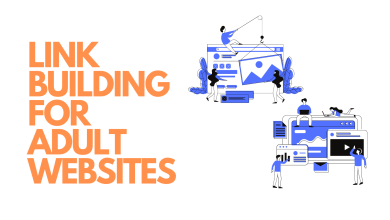How Health Provider Are Use Medical Records Portal

Medical records portal technology has transformed fintech, consumer technology, travel, and other industries, and it is now poised to change established approaches to healthcare. However, you may be asking how you might employ a telemedicine-specific medical records portal for your digital health firm. In this article, we will look at some of the primary ways that medical records portals are being use by health technology businesses to swiftly and easily add functionality to their platforms.
How health care providers use medical records portals
Medical records portals fundamentally eliminate the requirement to construct core functionalities for your platform from the beginning. When your developers don’t have to spend hours designing things like calendars or patient portals, they can focus on perfecting the most unique and engaging components of your business. There are numerous ways a medical records portal can enhance the capabilities of your platform, from supporting paperless client intake to expediting the invoicing process.
Scheduling
When it comes to healthcare and technology, one of the most prevalent applications for a medical records portal is scheduling. Clients nowadays prefer to book meetings online rather than calling to set up a time. Clients will not even need to visit another website if you include a medical records portal on your platform. They just book their appointment online. It is automatically put into their healthcare provider’s calendar. Many medical records portals will also offer things like automatic SMS reminders and cancellation or rescheduling, making things easy for both the client and the practitioner.
Client intake for new clients
Many healthcare practitioners already use paper forms to collect personal information, medical history, and insurance information from their patients. Manually inputting this data into an EHR system is both time-consuming and prone to error. But it can be readily expedite by using a telemedicine medical records gateway. A client intake medical records portal saves time for office workers. The secure digital forms make it simple for healthcare providers to get the most complete picture of their client’s health.
Telehealth
Telehealth appears to be the future of healthcare, and medical records portals have undoubtedly contributed to its progress. Health technology firms can use telemedicine medical records portals to offer HIPAA-compliant video and audio calls (one on one or in groups), asynchronous communication, patient participation, and more. Many of these medical data portals also offer other capabilities, such as real-time tracking of telehealth activities for easy reporting and invoicing, or the ability to record video sessions for later review by customers.
Wearables
Smartwatches and other wearable health gadgets are a prominent health technology trend. Data can be automatically sent from these devices to a third-party app using a medical records portal. A diabetic patient, for example, may have a gadget that monitors their blood sugar levels. Rather than having to write down the data displayed by the gadget, a medical records portal would record it in an app. The data might then be automatically transmitted to the patient’s healthcare practice.
Payment and Insurance
Paying via your phone is a must-have feature for mobile apps. A good billing medical records platform will make it simple to create and manage subscriptions, manage recurring payments, and generate payment paperwork automatically.
While businesses like consumer technology require direct billing and card payment functionality. Healthcare is unique in that it is frequently reliant on insurance billing. Using an insurance medical records interface allows your users to quickly produce and transmit insurance claims. It may even be able to auto-fill claim information.
Interoperability of providers
The healthcare business has long suffered as a result of providers employing closed systems for recordkeeping. A doctor, radiologist, and physical therapist may all have very distinct sets of notes on the same patient.
Telemedicine medical records portals are on track to make this fragmented system of records a thing of the past by enhancing healthcare interoperability. Your platform may benefit from a medical records gateway. Which facilitates data sharing between providers and allows healthcare providers to easily understand a client’s status.



